ABURY Designer Ruth in Ethiopia: My First Impressions of Addis Ababa
Posted on 27 September 2017
“Is this your first time in Africa?" I’ve been asked that question a lot. Many people seem surprised when I say no (I spent two weeks in Uganda at the age of 16), but also seem to relax a little; at least she has a sense of what to expect... But did I?
That One Big Country, Africa
White people generally have a terrible habit of treating Africa like one big country and imagine that the whole continent looks like the Sahara desert. I admit that before I came to Africa I was naïve to just how green some areas are. But just because I’ve been to Uganda didn’t mean I knew what to expect of Ethiopia. Of course, there are some parallels: the aforementioned greenness (it’s raining a LOT at the moment!); the intrigued stares you receive because you are white; the beautiful smiles; and sadly, the pervasive presence of heartbreaking poverty.
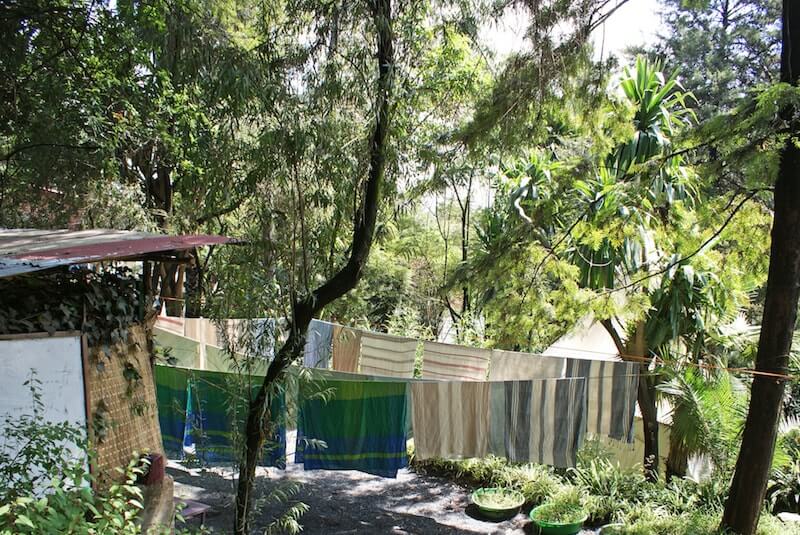
Vibrance of Addis Ababa
But the sprawling city of Addis Ababa has a personality all of its own. When I say sprawling I really mean it; 204 square miles of rolling metropolitan expanse, bustling with life even in the areas further out from the centre where the buses don’t quite reach. Surrounded by hills on all sides, I’m told that the view of the city from above is quite spectacular, though at the moment all I can do is gaze on looming shadows. The rainy season leaves a permanent blue haze over the distant hills, which is quite beautiful and calming in its own way, though I’m waiting for the day when I can see them in sharp detail and welcome in the dry season!
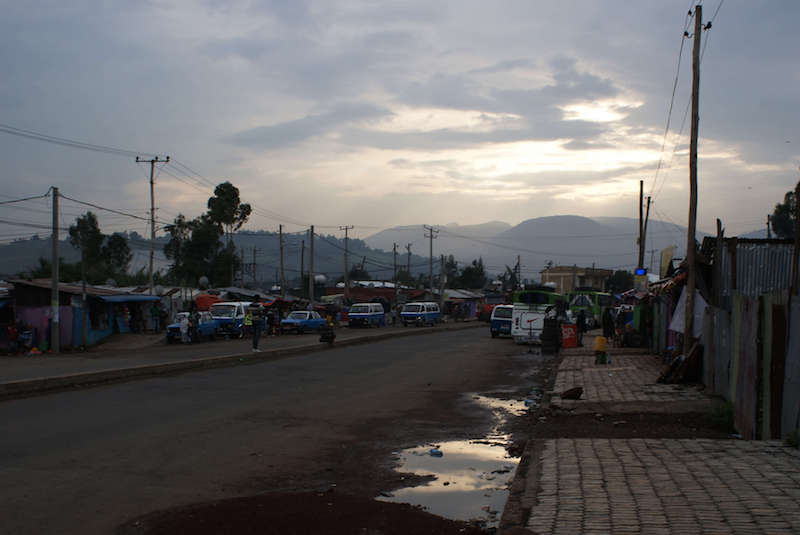 The distant hazy hills in the evening, as the sun is starting to set.
The distant hazy hills in the evening, as the sun is starting to set.
Iron Dwellings in Addis Ababa
Addis Ababa is a growing city in many ways, but the majority of people live in crude dwellings constructed from sheets of corrugated iron, often brightly painted, giving the whole place a higgledy-piggledy feel. I have learnt to look more closely at the metal houses lining the street because a significant number are tiny, unassuming local stores, called souks, selling a small selection of vegetables, soft drinks, and the all-important scratch cards you must purchase to top up your phone. Data plans don’t exist here!
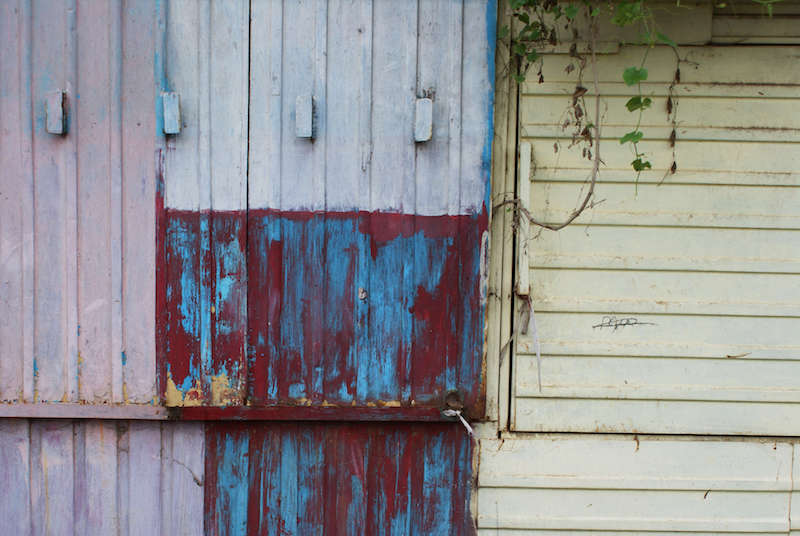
No Day without Ethiopian Coffee
You can’t walk very far in Addis Ababa without a pervasive smell hitting you. It can be slightly unsavoury, but more often than not it is the warm and inviting smell of freshly brewed coffee that tickles the senses, prepared in the traditional way over a fire with the sweet smell of eucalyptus or frankincense burning in accompaniment. Thankfully it is me – a coffee lover – and not my Devo-tea English friends (they’ve branded me a traitor) who is visiting the world’s fifth largest coffee exporter. (However, of all the coffee Ethiopia exports, they keep the same amount for themselves – that’s a lot of coffee, and great news for me!).
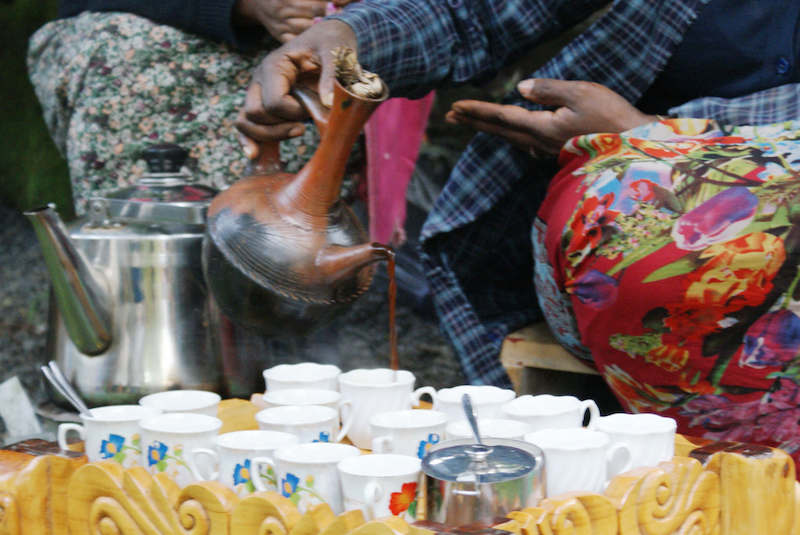 Coffee being poured into tiny cups from the traditional coffee pot (called a jebena), black at the bottom from the fire.
Coffee being poured into tiny cups from the traditional coffee pot (called a jebena), black at the bottom from the fire.
Ethiopia Versus the West
There is a wonderful way of doing things here that reflects a very different set of priorities to those you find in the West. Crossing the road is an adventure, often unfolding in a precarious game of chicken between driver and pedestrian; unless you jaywalk, you just aren’t crossing the road! Donkeys and horses will graze on roundabouts or in the middle of the road quite happily, and often road closures will appear unannounced, as I experienced on my very first day: it is totally normal to block an entire road with a large tent for a traditional funeral ceremony. Ethiopians also have an inherently special value for family and community; I was surprised when I went with a Sabahar colleague to a small local place for lunch that the couple sitting beside us offered to share their meal. Apparently, this is very common and is a way to extend hospitality to those less fortunate.
 A typical scene on my walk home from work.
A typical scene on my walk home from work.
Making a Difference
In amongst the beauty, kindness and hospitality of Ethiopia, the overriding feeling I have of being here is one of immense privilege. When you walk down the street with a laptop in your bag and a camera in your hand, it is a branded mark that screams excess and plenty to those who have so little – and I know that the poverty I see is just a small portion of the bigger problem. I can’t help the fact that I was born into a loving family with a comfortable life, but I can choose to refuse the pervasive dissatisfaction of our culture and to think proactively about how I can step out of my privilege to make some small difference to those in need. I am immensely grateful that I can work with Sabahar, who by providing stable, decent work is making a profound impact on the people in this community. It has renewed my belief that good business can actually change the world and impressed upon me once again how much more work needs to be done.
© All photos via Ruth Hepburn


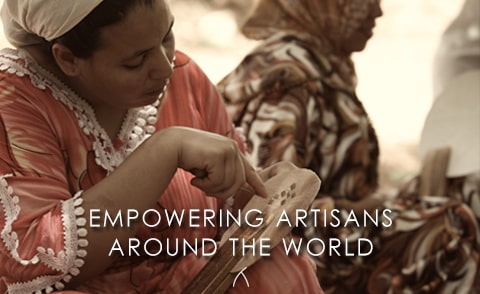
0 comments